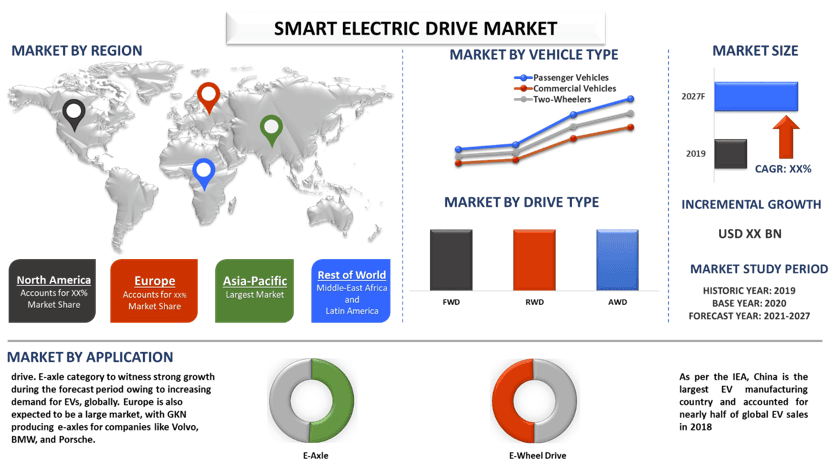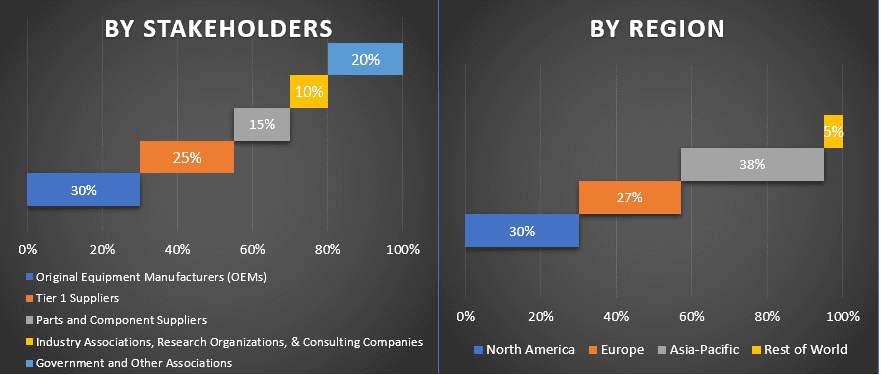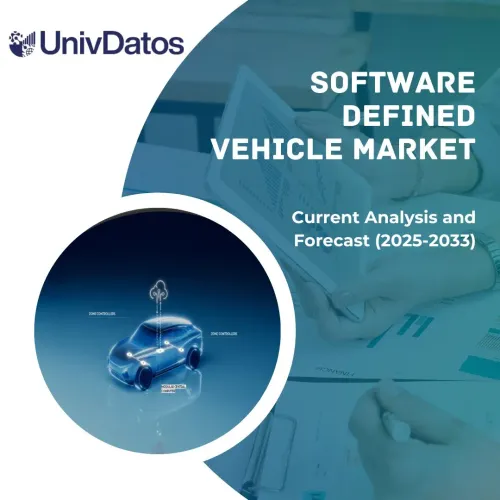- Home
- About Us
- Industry
- Services
- Reading
- Contact Us
Smart Electric Drive Market: Current Analysis and Forecast (2021-2027)
Emphasis on Vehicle Type (Passenger Vehicle, Commercial Vehicle, and Two-Wheelers); Application (E-Axle and E-Wheel Drive); Component (EV battery, Electric Motor, Inverter System, E-Brake Booster, and Power Electronics); Drive Type (Front-Wheel Drive (FWD), Rear-Wheel Drive (RWD), and All-Wheel Drive (AWD)); and Regions/Country

Smart Electric Drive Market is anticipated display a CAGR of around 35% over the forecast period (2021-2027). Global Smart Electric Drive market is majorly driven by the steady growth in the vehicle sales with the overall demand for the advance electric systems. Autonomous driving (AD), connected cars, electrification of powertrain, and shared mobility (ACES) are the major trends that are mutually reinforcing developments in the automotive industry. These trends combined, are not only disrupting the automotive value chain and impacting all stakeholders but also are major drivers for the market. Furthermore, rising adoption of electric vehicles in also driving the demand for smart electric drive. China is estimated to produce more than 13 million battery electric vehicles (BEV) and plug-in hybrid electric vehicles (PHEV) by the end of FY2023, more than any other country globally.
The COVID-19 pandemic have had a severe impact on the entire automotive industry. This has resulted in disruptions in the supply of automotive components due to lockdowns imposed by governments. This scenario negatively affected the Smart Electric Drive market, as the growth of this market is directly related to the production of vehicles. In 2020, worldwide motor vehicle production fell sharply, dropping 15.4% from the previous year, because of travel restriction measures and an overall decline in economic activity due to the COVID-19 pandemic. Passenger cars experienced a more significant drop in production than commercial vehicles, with decreases of 16.9% and 11.6%, respectively..
Insights Presented in the Report
“Amongst Vehicle Type, Commercial Vehicle category to witness significant growth during the forecast perriod”
Based on Vehicle Type, the market is segmented into passenger vehicle, commercial vehicle, and two-wheelers. Commercial vehicle category is expected to witness highest CAGR of during the forecast period owing to sustained economic activities, rising spending on the infrastructure sector, increasing e-commerce and mining activities, and lower interest rates on commercial vehicles. Furthermore, market players are investing heavily on the research and launch of advance electric drive for commercial vehicles, which is further expected to drive the market. For instance, in August 2018 , Robert Bosch GmbH launched its new electric vehicle drivetrain for use in electric light commercial vehicles. It consists of multiple components like electric motor, power electronics etc.
“Amongst Component, EV Battery category to Hold Majority Share in 2020 ”
Based on component, the market is bifurcated into EV battery, electric motor, inverter system, e-brake booster, and power electronics. EV battery category to account for majority share mainly due to their high cost in overall e-drivetrain. Furthermore, government has been introducing number of schemes and incentives for electric vehicle manufacturers, which is expected to increase the demand of electric vehicle batteries during the forecast period.
“Amongst Application Type, E-axle vehicles category to witness strong growth during 2021–2027 ”
Based on application type, the market is bifurcated into e-axle and e-wheel drive. E-axle category to witness strong growth during the forecast period owing to increasing demand for EVs, globally. Europe is also expected to be a large market, with GKN producing e-axles for companies like Volvo, BMW, and Porsche. Similarly, most manufacturers in the North American region use in-house manufacturing for passenger cars, and companies like BorgWarner, Meritor, etc., manufacture e-axles for electric trucks. For Instance, in January 2019, BorgWarner launched its new range of electric drivetrains through its new iDM e-axle. It is developed for use in all kinds of EVs.
“Asia-Pacific will Dominate the Market During the Forecast Period”
For a better understanding of the market adoption of Smart Electric Drive, the market is analyzed based on its worldwide presence in the countries such as North America (United States, Canada, and Rest of North America), Europe (Germany, France, Italy, Spain, United Kingdom and Rest of Europe), Asia-Pacific (China, Japan, India, Australia and Rest of Asia-Pacific), and Rest of World. In 2020, APAC region held the highest market share in the global smart electric drive market. Some of the major players operating in the market Robert Bosch GmbH, Nidec Corporation, Aisin Corporation, BorgWarner Inc., ZF Friedrichshafen AG, Magna International Inc., Continental AG, DENSO Corporation, GKN Ltd., and Meritor Inc.
Reasons to buy this report:
- The study includes market sizing and forecasting analysis validated by authenticated key industry experts
- The report presents a quick review of overall industry performance at one glance
- The report covers an in-depth analysis of prominent industry peers with a primary focus on key business financials, product portfolio, expansion strategies, and recent developments
- Detailed examination of drivers, restraints, key trends, and opportunities prevailing in the industry
- The study comprehensively covers the market across different segments
- Deep dive regional level analysis of the industry
Customization Options:
The Smart Electric Drive Market can further be customized as per the requirement or any other market segment. Besides this, UMI understands that you may have your own business needs, hence feel free to connect with us to get a report that completely suits your requirements.
Table of Content
Analyzing the historical market, estimation of the current market, and forecasting the future of the Smart Electric Drive Market were the three major steps undertaken to create and analyze the demand and sales of Smart Electric Drive across major regions globally. Exhaustive secondary research was conducted to collect the historical market numbers and estimate the current market size. Secondly, to validate these insights, numerous findings and assumptions were taken into consideration. Moreover, exhaustive primary interviews were conducted, with industry experts across the value chain of the industry. Post assumption and validation of market numbers through primary interviews, we employed a bottom-up approach to forecast the complete market size. Thereafter, market breakdown and data triangulation methods were adopted to estimate and analyze the market size of segments and sub-segments the industry pertains to. Detailed methodology is explained below.
Analysis of Historical Market Size
Step 1: In-Depth Study of Secondary Sources:
Detailed secondary study was conducted to obtain the historical market size of the Smart Electric Drive through company internal sources such as annual report & financial statements, performance presentations, press releases, etc., and external sources including journals, news & articles, government publications, competitor publications, sector reports, third-party database, and other credible publications.
Step 2: Market Segmentation:
After obtaining the historical market size of the Smart Electric Drive, we conducted a detailed secondary analysis to gather historical market insights and share for different segments & sub-segments for major regions. Major segments included in the report are component type, application type, and vehicle type. Further regional level analyses were conducted to evaluate the overall demand of Smart Electric Drive in global context.
Step 3: Factor Analysis:
After acquiring the historical market size of different segments and sub-segments, we conducted a detailed factor analysis to estimate the current market size. Further, we conducted factor analysis using dependent and independent variables such as growing vehicle ownership and technological advancement in the healthcare sector etc. Historical trends and their year-on-year impact on the market size and share was analyzed. Demand and supply side scenario was also thoroughly studied.
Current Market Size Estimate & Forecast
Current Market Sizing: Based on actionable insights from the above 3 steps, we arrived at the current market size, key players in the Market, and market shares of the segments and company. All the required percentage split, and market breakdowns were determined using the above-mentioned secondary approach and were verified through primary interviews.
Estimation & Forecasting: For market estimation and forecast, weights were assigned to different factors including drivers & trends, restraints, and opportunities available for the stakeholders. After analyzing these factors, relevant forecasting techniques i.e., bottom-up approach was applied to arrive at the market forecast to 2027 for different segments and sub segments across the major regions globally. The research methodology adopted to estimate the market size encompasses:
- The industry’s market size, in terms of value (US$) and the demand of Smart Electric Drive across the major regions globally
- All percentage shares, splits, and breakdowns of market segments and sub-segments
- Key players in the Smart Electric Drive Market in terms of products offered. Also, the growth strategies adopted by these players to compete in the fast-growing market.
Market Size and Share Validation
Primary Research: In-depth interviews were conducted with the Key Opinion Leaders (KOLs) including Top Level Executives (CXO/VPs, Sales Head, Marketing Head, Operational Head, and Regional Head, Country Head, etc.) across major countries. Primary research findings were then summarized, and statistical analysis was performed to prove the stated hypothesis. Inputs from primary research were consolidated with secondary findings, hence turning information into actionable insights.
Split of Primary Participants in Different Regions

Market Engineering
Data triangulation technique was employed to complete the overall market estimation and to arrive at precise statistical numbers of each segment and sub-segment of the Smart Electric Drive market. Data was split into several segments & sub-segments post studying various parameters and trends in the areas of product, distribution channel, and regions.
The main objective of the Smart Electric Drive Market Study
The current & future market trends of the Smart Electric Drive Market are pinpointed in the study. Investors can gain strategic insights to base their discretion for investments from the qualitative and quantitative analysis performed in the study. Current and future market trends would determine the overall attractiveness of the market at a regional level, providing a platform for the industrial participant to exploit the untapped market to benefit as a first-mover advantage. Other quantitative goals of the studies include:
- Analyze the current and forecast market size of Smart Electric Drive in terms of value (USD). Also, analyze the current and forecast market size of different segments and sub-segments of the industry
- Segments in the study include component type, application type, vehicle type, and regions
- Defined analysis of the regulatory framework for the Smart Electric Drive industry
- Analyze the value chain involved with the presence of various intermediaries, along with analyzing customer and competitor behaviors pertaining to the industry
- Analyze the current and forecast market size of the Smart Electric Drive across the globe. Major regions analyzed in the report include North America (US, Canada, Rest of North America); Europe (Germany, UK, France, Italy, Rest of Europe); Asia-Pacific (China, India, Japan, South Korea, Rest of Asia-Pacific); and Rest of World. Define and analyze the competitive landscape of the Smart Electric Drive sector and the growth strategies adopted by the market players to sustain in the fast-growing market
- Deep dive regional level analysis of the industry
Related Reports
Customers who bought this item also bought










